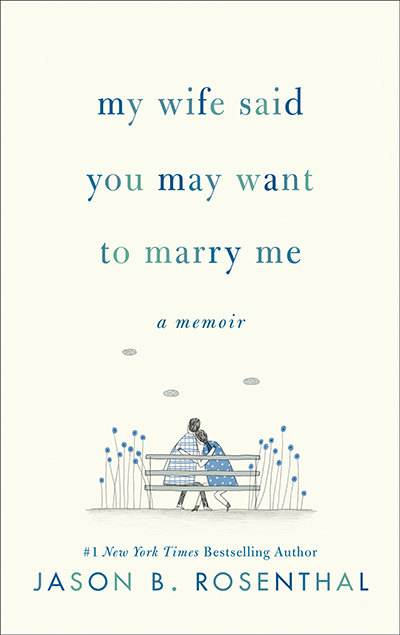AARP Hearing Center
| In 2017, Amy Krouse Rosenthal wrote a heart-wrenching essay for the New York Times' Modern Love section called “You May Want to Marry My Husband.” In it, Amy, 51, a prolific children's-book author and filmmaker who was in the final stage of ovarian cancer, explained, personal-ad style, why her dedicated spouse of 26 years, Jason Rosenthal, would make someone a wonderful husband. ("Wait. Did I mention that he is incredibly handsome?” she queried.) Her mission: To give Jason very public permission to find happiness — and love — after she died.
The poignant piece went viral and was read by millions worldwide. Sadly, Amy passed away 10 days later.
In the aftermath of the New York Times article and Amy's passing, Jason and Amy's love story garnered much attention. He received thousands of letters from readers — some expressing their condolences; others, their personal interest in him. A lawyer by trade, he found his experience catapulted him on a different journey, in which he gave a deeply personal TED talk and wrote and spoke about grief and living through loss. In his memoir, My Wife Said You May Want to Marry Me, Jason, 55, speaks to his role as Amy's caregiver and his new life as a widower and single father of three.
One of the reasons you wanted to write this book was to help people through “their own personal darkness.” Has talking about Amy, her illness and her passing helped with your grief?


Jason Rosenthal: I am asked this often, even from my own family. It took me a while, but I have gotten to a place where I just deeply appreciate what I had with Amy and the amazing life we had together, full of love and joy, whimsy and family. And so, I don't mind returning to talking about Amy, even as I move forward in my life, because she really is someone who should be spoken about. Not just her death but her life. She lived such a beautiful, beautiful life.
How did you handle becoming your wife's caregiver?
JR: I don't feel like there is any type of guidebook, so I just plunged right into it. I had such a deep love for Amy that I wanted her end of life to be as comfortable and beautiful as it possibly could be.






































































